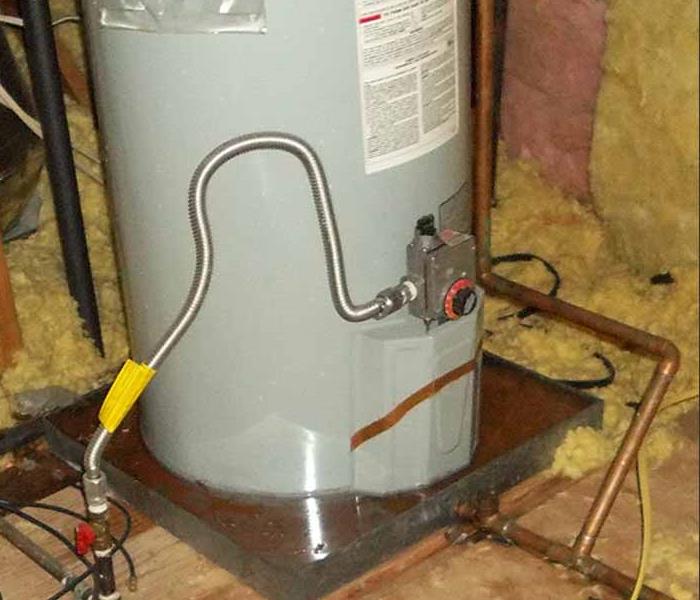Water Heater Safety Tips
6/18/2018 (Permalink)
Water heater failure causes fires and flooding all across the world. Water heater routine maintenance can help you avoid the catastrophe the occurs when a water heater fails. Nationwide insurance recently offered some tips about water heater safety that we would like to share with you.
Pulling up on the handle to make sure water flows freely out, and stops when you let go of the handle. If it does nothing or runs or drips, then the valve should be replaced.
Strapping your water heater is a good idea, even if you live outside an earthquake zone. If your water heater were to fall over for any reason, it could sever the gas line and cause an explosion.
Flushing the hot water heater through the drain valve at least once a year to remove sediment buildup. You should have a drain line, usually to within about 6 inches of the floor, or plumbed outside. This is to prevent you from being scalded if the valve should open while you’re standing next to it.
Remove paper, accumulated dust or other combustibles from the heater enclosure.
Extinguish the pilot light before using flammable liquids or setting off aerosol bug bombs.
If the device is in the garage, raise it so the pilot light is 18 inches above the floor. This helps prevent ignition of gasoline vapors that collect near the floor.
Consider installing an automatic gas-shutoff valve which stops the flow of gas if the ground moves or if gas flow increases dramatically. The valve, which costs around $300, prevents fires when a gas line breaks due to flood, earthquake or other disaster.
You may also want to insulate the first 6 feet of the hot water pipe and the first 3 feet of the cold water pipe that extends from your hot water tank. Insulating the hot water pipe reduces heat loss and insulating the cold water pipe reduces “sweating” in the summer. You can find pipe wrap insulation for this purpose in most hardware stores.
Do not use pipe wrap or any other insulation within 6 inches of the draft hood or flue exhaust vent at the top of the natural gas water heater.






 24/7 Emergency Service
24/7 Emergency Service
